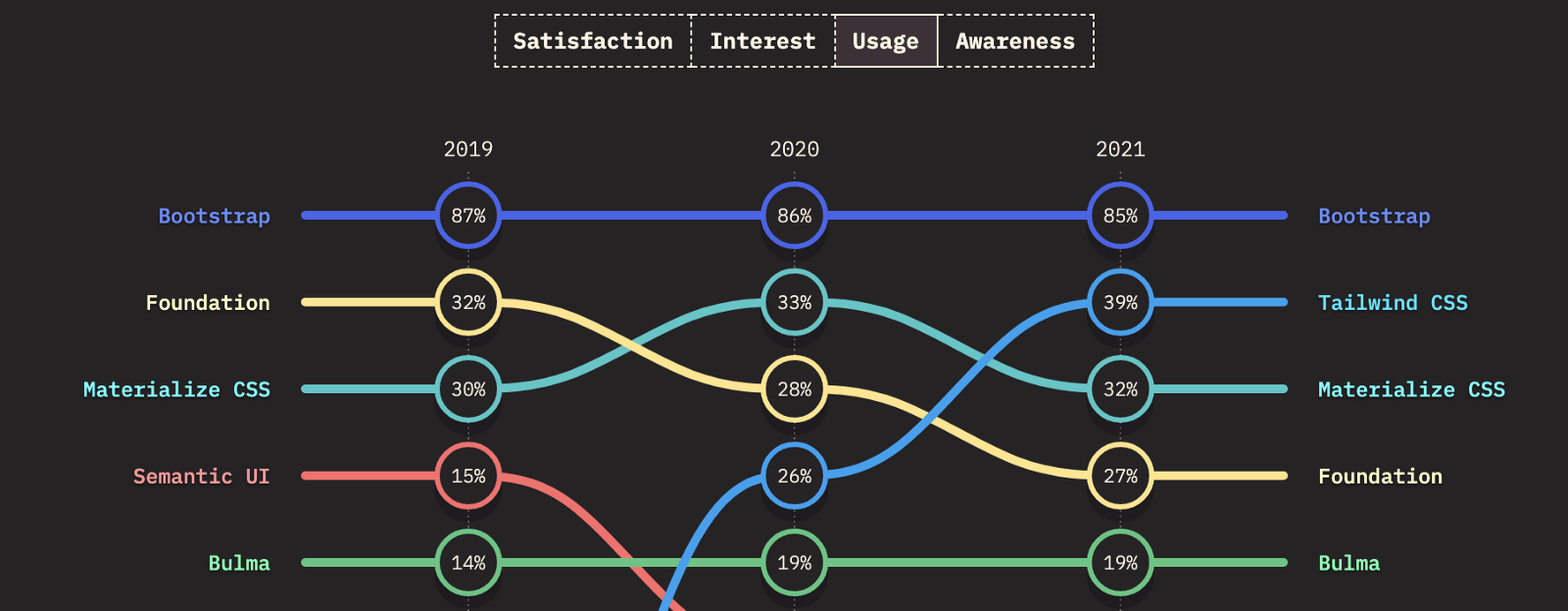Insightful Perspectives
Explore a world of engaging news and informative articles.
Frameworks that Make You Go CSS-Whoa!
Discover the top CSS frameworks that will elevate your web design game and leave you saying "Whoa!" Unleash creativity today!
Top 5 CSS Frameworks to Transform Your Web Design
In the world of web development, utilizing the right tools can significantly enhance your design process. CSS frameworks are invaluable for streamlining the coding experience and ensuring consistency across your website. Here are the top 5 CSS frameworks that can help transform your web design:
- Bootstrap: The most popular framework for developing responsive, mobile-first websites.
- Tailwind CSS: A utility-first framework that allows for rapid custom design without leaving your HTML.
- Bulma: A modern CSS framework based on Flexbox, providing a clean and minimal design.
- Foundation: Known for its speed and flexibility, Foundation is perfect for custom web applications.
- Semantic UI: A framework that uses human-friendly HTML to create responsive layouts quickly.

How to Choose the Right CSS Framework for Your Project
Choosing the right CSS framework for your project is crucial for ensuring efficient development and a visually appealing design. Start by assessing your project's specific requirements: consider factors such as design complexity, responsiveness, and compatibility with various devices. Popular frameworks like Bootstrap and Tailwind CSS offer extensive documentation and community support, which can be beneficial for beginners. Additionally, if you are working on a project that requires speed and lightness, you might want to explore minimalistic frameworks like Pure.css or Milligram.
Another key consideration is the learning curve associated with the framework. CSS frameworks can vary significantly in terms of complexity; for example, while Foundation offers a powerful array of features, it may require more advanced knowledge compared to simpler frameworks. Be sure to evaluate the framework's flexibility and customizability as well. A good framework should allow you to easily override default styles to match your project's unique look. Lastly, staying updated with the latest trends in CSS frameworks can provide insights into their performance and community feedback, so consider following reliable sources such as CSS-Tricks for ongoing guidance.
Exploring the Benefits of Using CSS Frameworks for Responsive Design
In the ever-evolving landscape of web design, using CSS frameworks has become essential for achieving responsive design. These frameworks, such as Bootstrap and Foundation, provide a robust grid system and pre-defined components that make it easier to create mobile-friendly websites. By utilizing a grid system, developers can ensure that their websites look great across different devices and screen sizes. This not only enhances user experience but also contributes positively to SEO, as search engines prioritize mobile-friendly sites in their rankings.
Another significant benefit of using CSS frameworks is the speed at which developers can create and deploy websites. With a library of pre-styled components, designers can quickly assemble layouts without having to write extensive custom CSS. This efficiency translates into reduced development time and costs, allowing teams to focus on other critical project aspects. As a result, leveraging these frameworks can streamline workflows and lead to quicker project turnovers, providing a competitive edge in the fast-paced digital world.